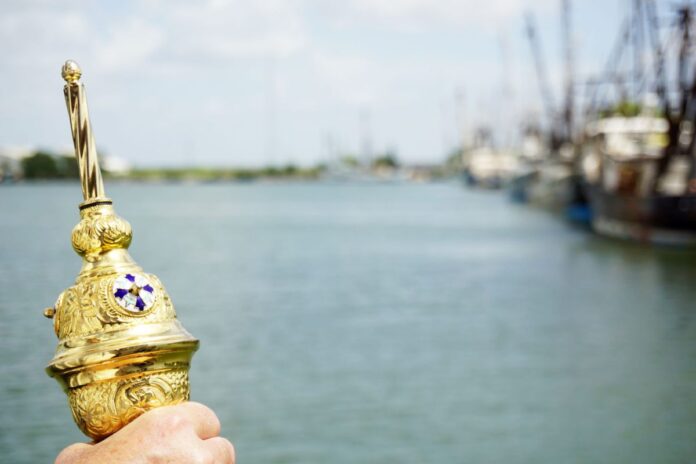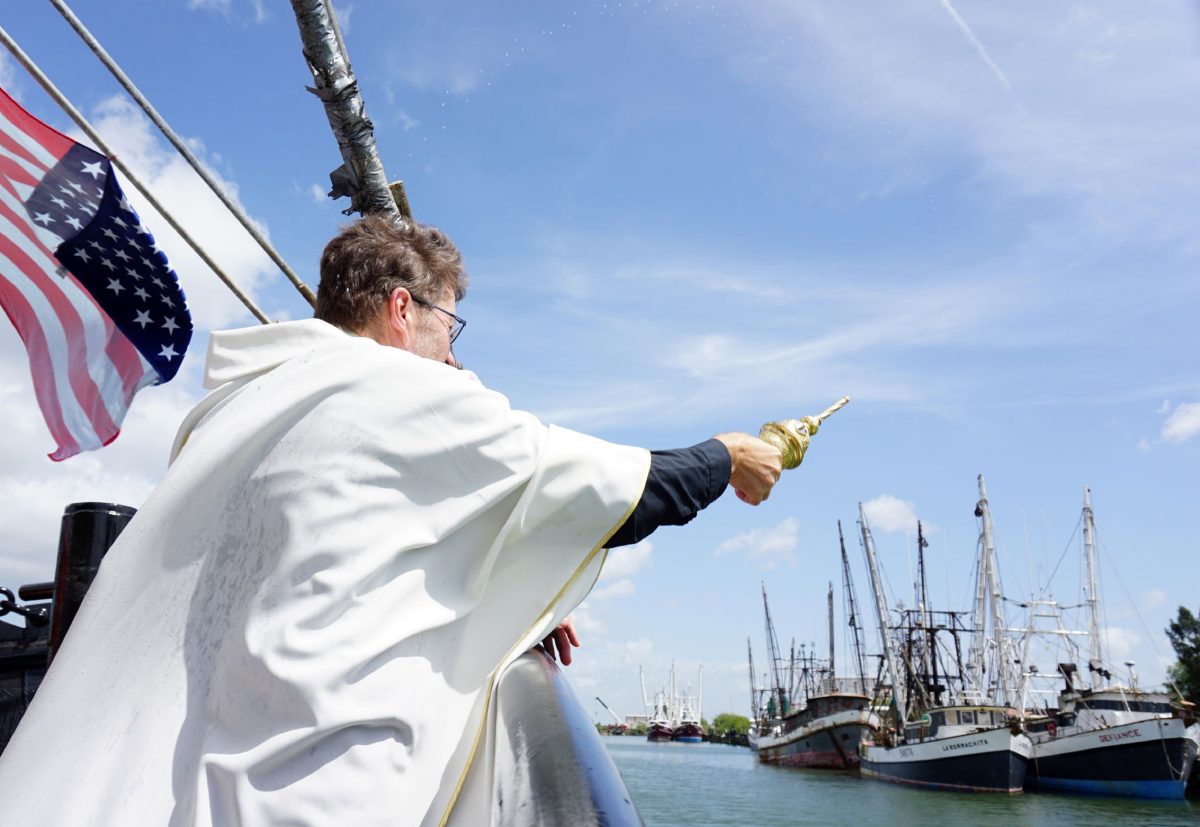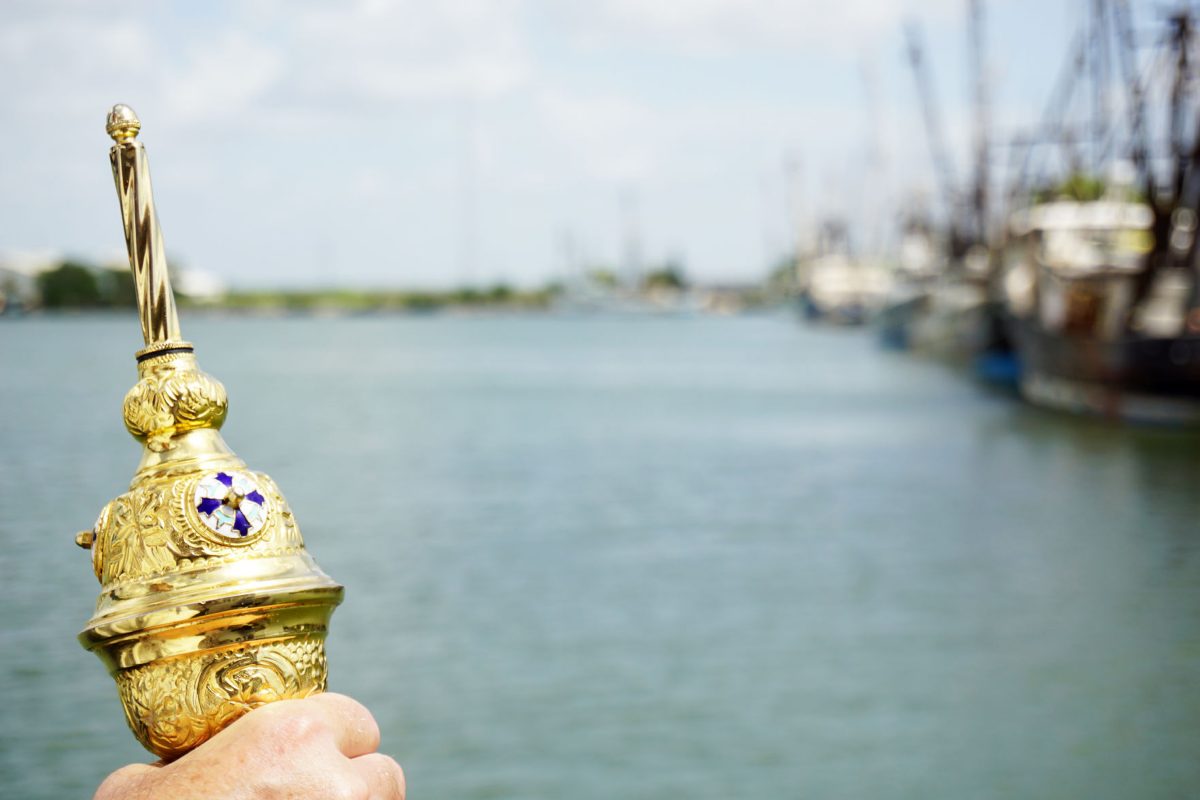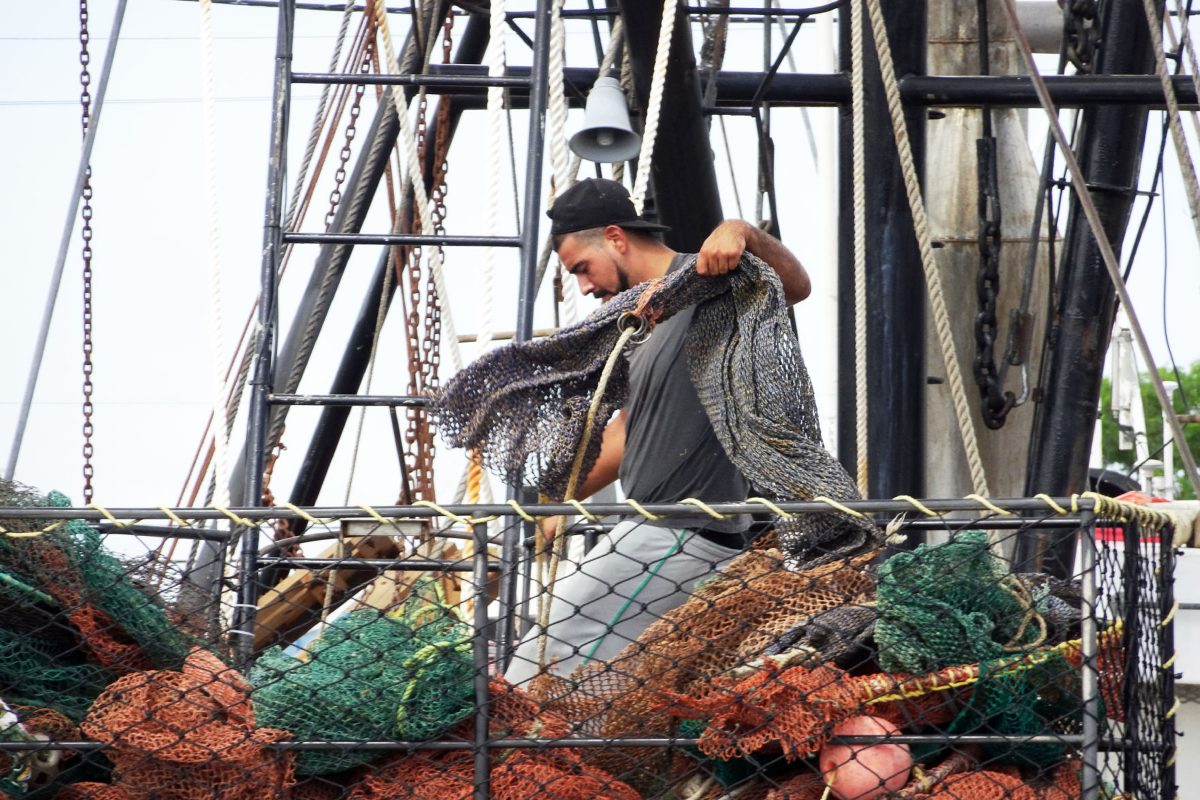BROWNSVILLE — Yesterday’s blessing-of-the-fleet at the Brownsville Shrimp Basin felt similar to the one a year ago, with a sermon from Father Mark Watters and an issue over the shortage of workers.
After facing a slight scare of almost not making it to Brownsville, Watters said his 13th year blessing the Brownsville-Port Isabel shrimp fleet was not only a number, but a message of multiplication of double profusion.
“Now, 13, in the kingdom of heaven, that number, when you see it in scripture, what the enemy has stolen and made people superstitious about is actually a kingdom number that equates to double profusion,” he said.
Still, the shortage of foreign workers will remain a challenge the shrimp industry has to overcome.
Andrea Hance, executive director of the Texas Shrimp Association, said only a third of boat owners received confirmation that they will receive H-2B workers for this season, which starts July 15.
“Last year, (H-2B) visas came late, but they came,” Hance said. “This year, it was a lottery system, so only about 30 percent of them have the extra manpower to fish. So, a lot of these boats are going out without a full crew.”
Foreign nationals with H-2B visas are part of a temporary guest worker program that allows them to fill positions of need in nonagricultural industries for up to 10 months at a time.
Congress set the H-2B cap at 66,000 per fiscal year, with 33,000 for workers who begin employment during the first half of the fiscal year and 33,000 for those who start in the second half.
Hance said some boat owners decide to bring U.S. workers on board, some having no experience. Inexperienced workers create liability issues for boat owners.
“Based on a survey that we did last year, about 96 percent of those people will want off the boat within the first couple of weeks,” she said. “That boat has to turn back around and, by law, we have to bring that worker back to dock.”
Each night a boat is not working, the industry loses about $4,000 to $6,000 in production and about $1,000 in fuel.
A lack of workers also means boats won’t be able to head as much shrimp as they catch. Head-on shrimp decreases its value by about $1.50 per pound, Hance said.
“If they don’t have enough crew on the boat to head the shrimp, they’re just going to start packing them with the heads on,” she said.
Miguel Gonzalez, the captain of Hermosa Cruz, said right now, he has no crew members. Regardless, Gonzalez said he remains positive and looks forward to bringing a catch this season.
“It’s a slower process but we need the help; the more people on board, the faster things get headed out and put into the freezer,” he said. “I fish by faith. Whether I have the hands or not, we’re going to catch, we’re going to bring it down anyway.”
Hance also said she and the Texas Department of Agriculture are working on resolving another issue facing the industry, misinformation presented by restaurants that tell consumers their shrimp is from the Gulf of Mexico.
Dan Hunter, the assistant commissioner for Water and Rural for the Texas Department of Agriculture, attended the blessing-of-the-fleet event. He was joined by Nelda L. Barrera, a Trade and Business Development field representative, and Bobby Champion, state coordinator for shrimp marketing.
“Labeling issues come down from the federal government,” Hunter said. “We’ve been working with them, trying to do similar to what they did with the catfish labeling. I think, of course, there’s push and pull. We’re making progress. I think there’s no doubt that we’re making progress to making people realize not only … what they’re buying, but being able to look on the label and be sure of what they’re buying.”
The competition of imported shrimp presents another issue for the industry.
However, earlier this year, the National Oceanic and Atmospheric Administration lifted its stay on shrimp and abalone in the U.S. Seafood Import Monitoring Program.
By the end of the year, it will be mandatory for foreign shrimp products to be accompanied by harvest and landing data and for importers to maintain chain of custody records for shrimp and abalone imports entering the U.S., according to NOAA.
The addition of shrimp in SIMP will help resolve the issue by leveling the playing field for law-abiding fishermen, aquaculture producers and seafood producers.
“It’s not going to solve all our problems, but at least it’s a step in the right direction,” Hance said.
Despite the multiple challenges, Watters’ message during the blessing promised “there will be no disappointment in this season in every effort that we put forward.”








